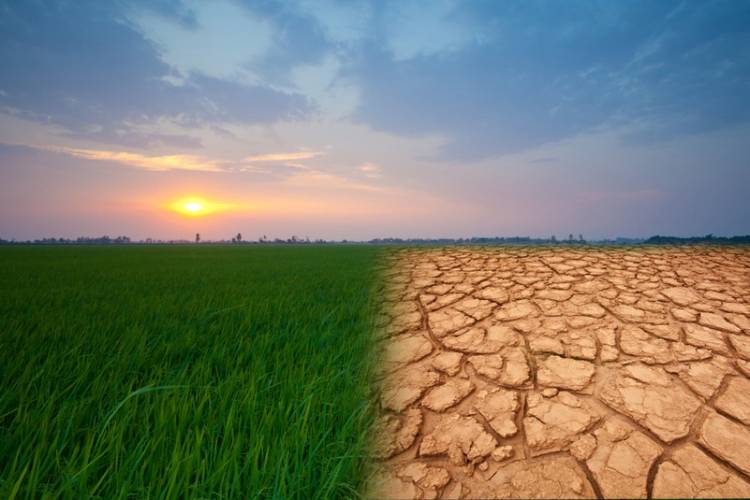Table of Contents
Rice farming is a major contributor to global trade and in rice consumption worldwide, it is the staple food of about each kitchen. But, there are various conditions in which climate affects rice farming to an extent.
Global climate changes affect food crop production. In some areas, sometimes positive effects on rice production and sometimes negative. The farmers faced many issues related to climate conditions due to which even led to the stage of starvation.
The changes which affect the cultivation, such as Low soil fertility, sudden changes in temperatures, heavy rainfall which sometimes turned into floods, and there is also a type of change in weather where farmers crave one drop of rain which resulted in droughts.
The low rate of food sufficiency is caused because of these climate changes that affect rice farming to a larger extent. When there was no rice production it became difficult for basmati rice exporters to export this crop all over the world.
These changes in crop cultivation over time are driven by the combination of agronomics and climates. Therefore, the insecurities for food will arise as the climate affects the poor farmers the most whose dependency was only on fielding.
How population affects the climate:
The global population is the accelerating point to climate changes so the income growth. Altogether, these both create the threat of food security everywhere. Agriculture is at risk from climate change.
The rapid increase in population will demand higher food for consumption. But this increase affects the environment which leads to climate change that will impact rice production.
It is a long circle, which has no ends. Each step is dependent on something else which has a connection to the first thing.
Climate changes that affect the rice farming:
- Droughts, that affect the soil and plants, creates the risk of wildfires.
- The weather shifts, sometimes heavy rains, and sometimes dryness all over the production land.
- Flood increments which damages the crop completely that causes soil erosion also.
- Industrial technology lacks biodiversity because the climate changes that affect the plant viability.
- Heavy pesticides have also become a reason for soil fertility which affects rice farming.
On a larger scale, droughts and floods have seen major climate changes which affect the crop production of basmati rice highly.
Droughts happen because of the rise in global warming. The areas that are widely affected by this are Africa, Southern Europe, the Middle East etc.
It results in crop failure, loss of stocks, etc heart-melting results that impact farmers life on a larger scale. In India, farmers are devoted to crop production, physically invested and more likely mentally invested in farming.
Conclusion:
Agriculture is the major source of living and basmati rice exporters export. And, Indian basmati rice has been the foremost and favourite amongst all.
Global food security relies on both the production and exports which are defined as food cultivation and access to it worldwide. Climate change looks like a barrier to creating food insecurity in the future because the prices are increasing and production is decreasing.
There must be some strategies to grow from these situations, such as: restoring the farm types and crops as well, should improving the cultivation method that would enhance the stress tolerance and many more, so that the insecurities for food will reduce.
